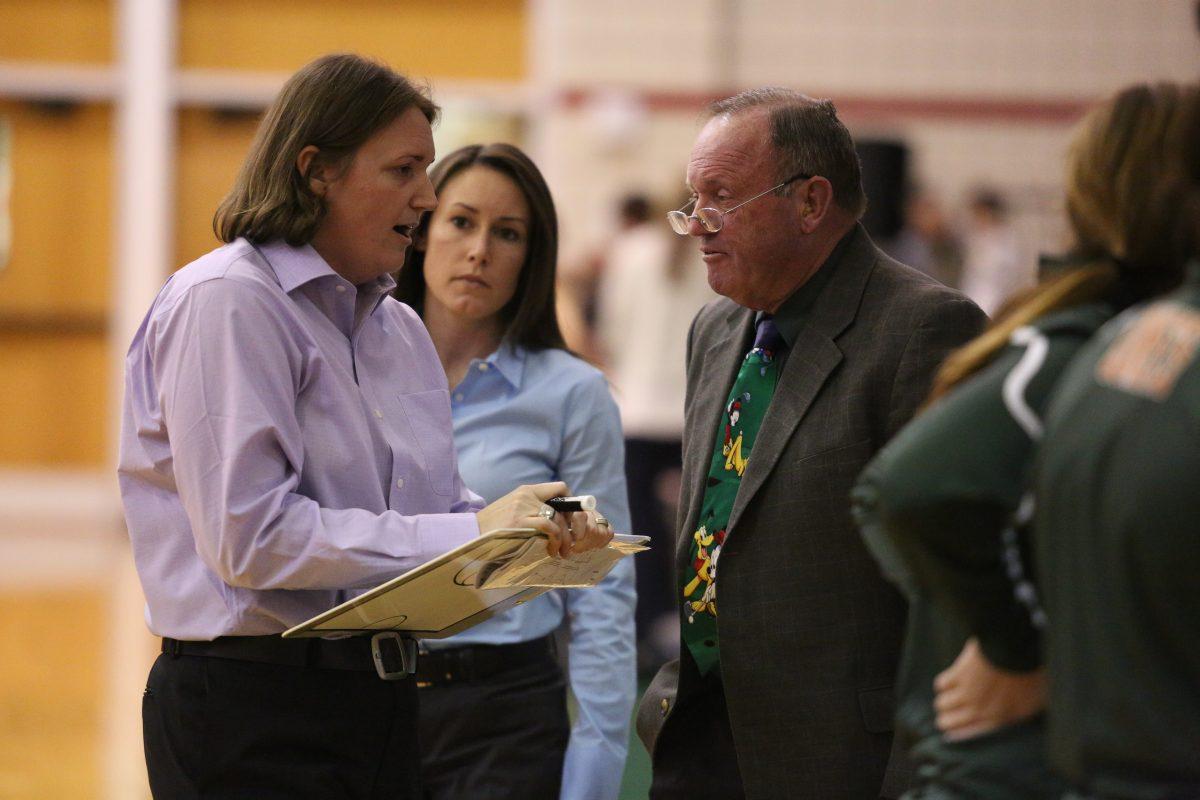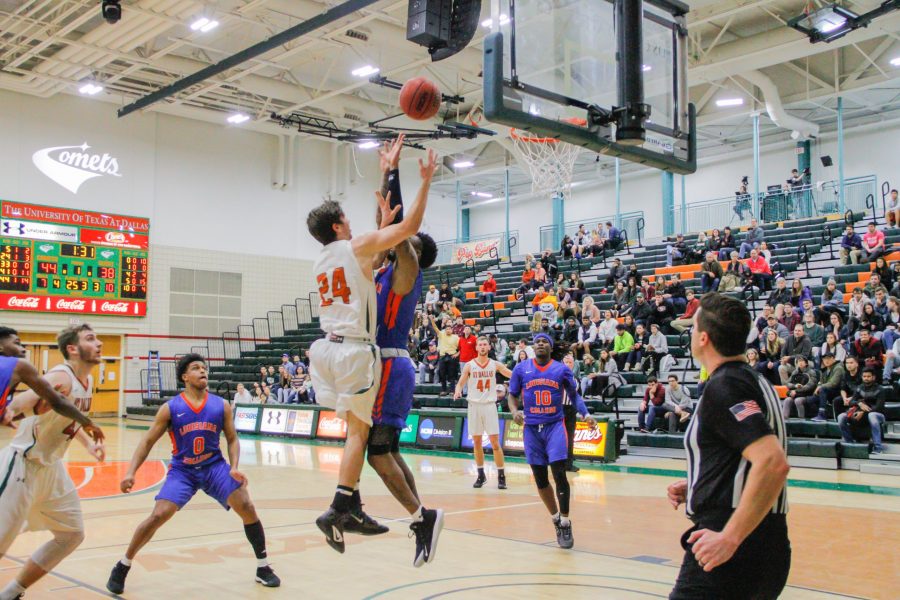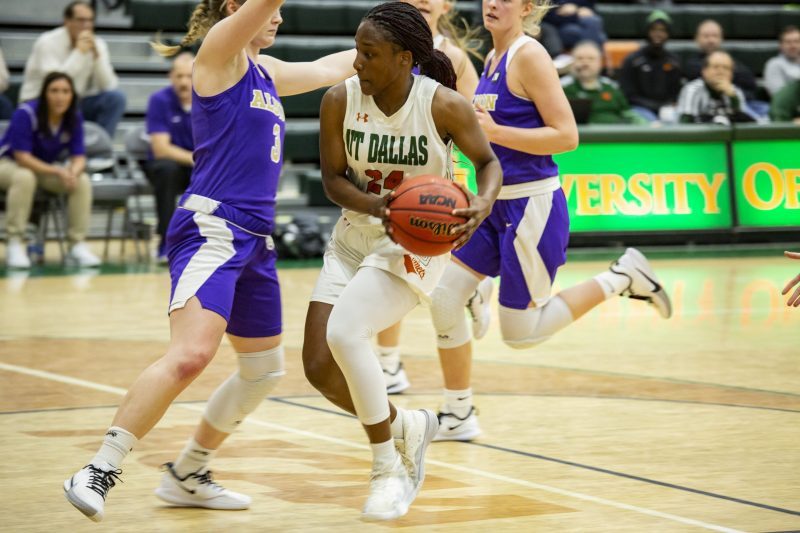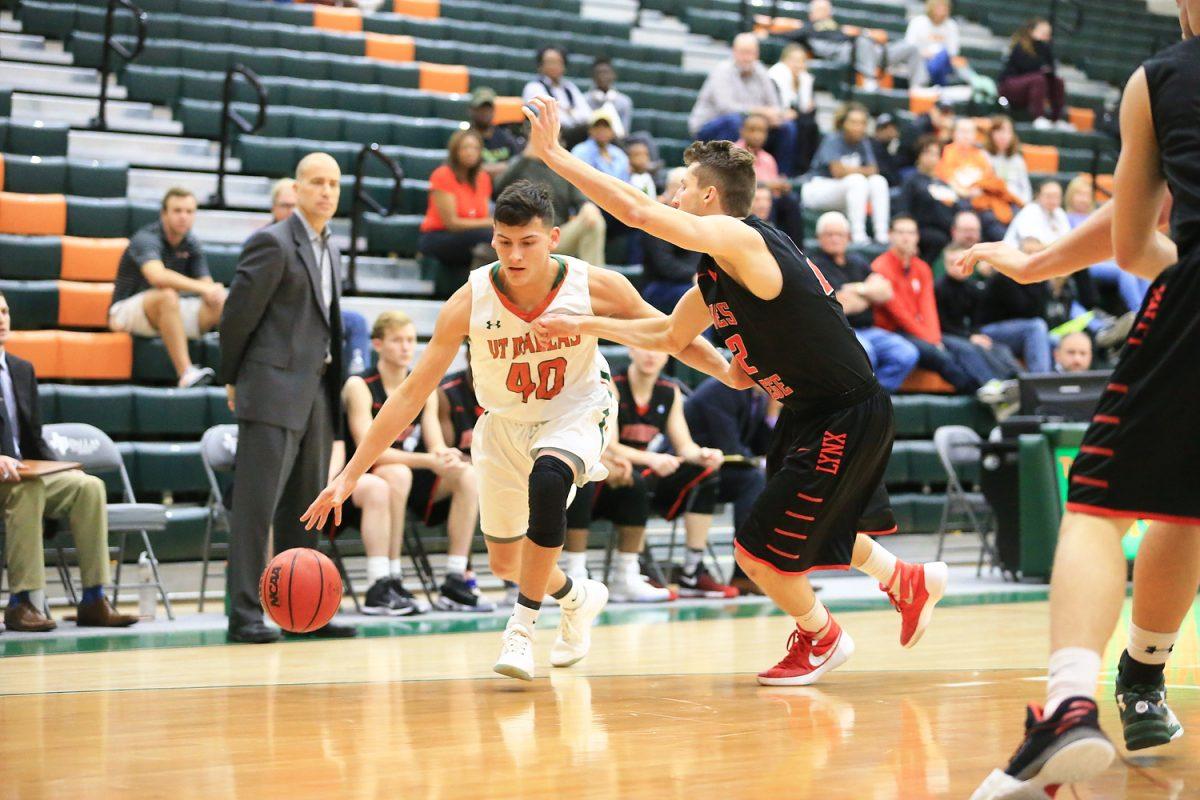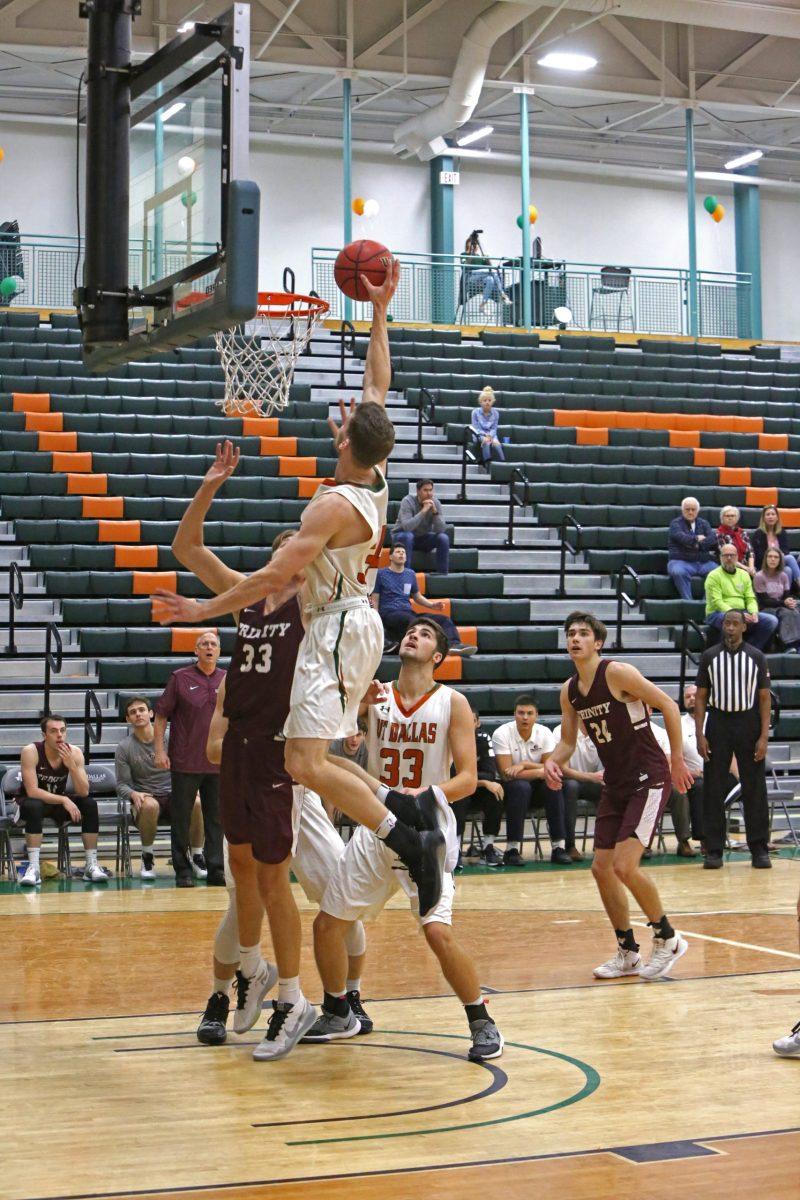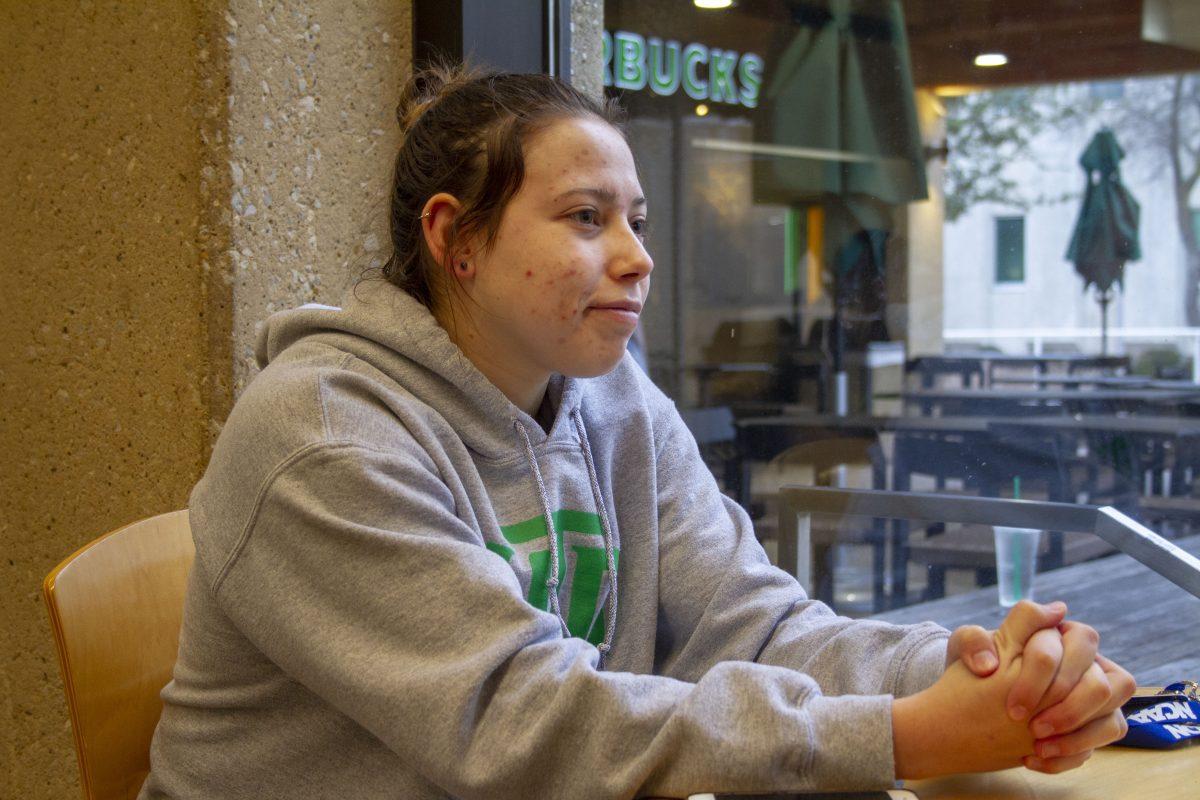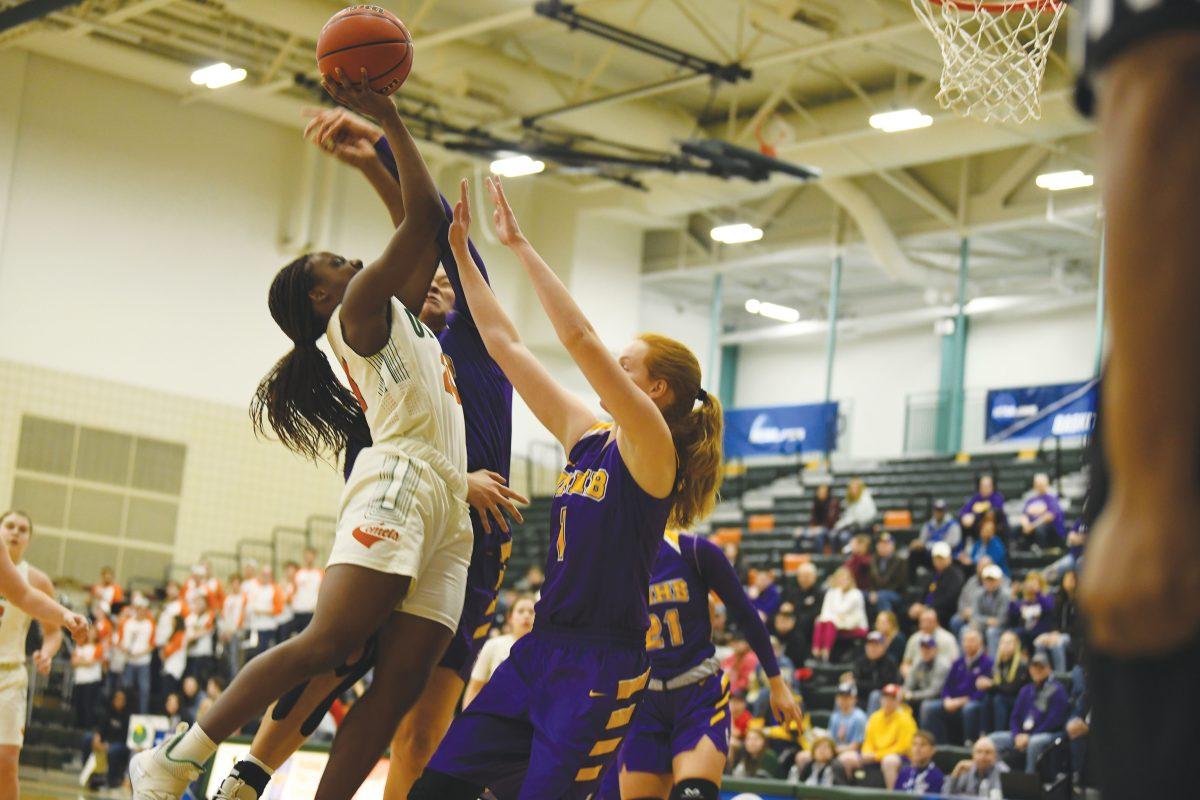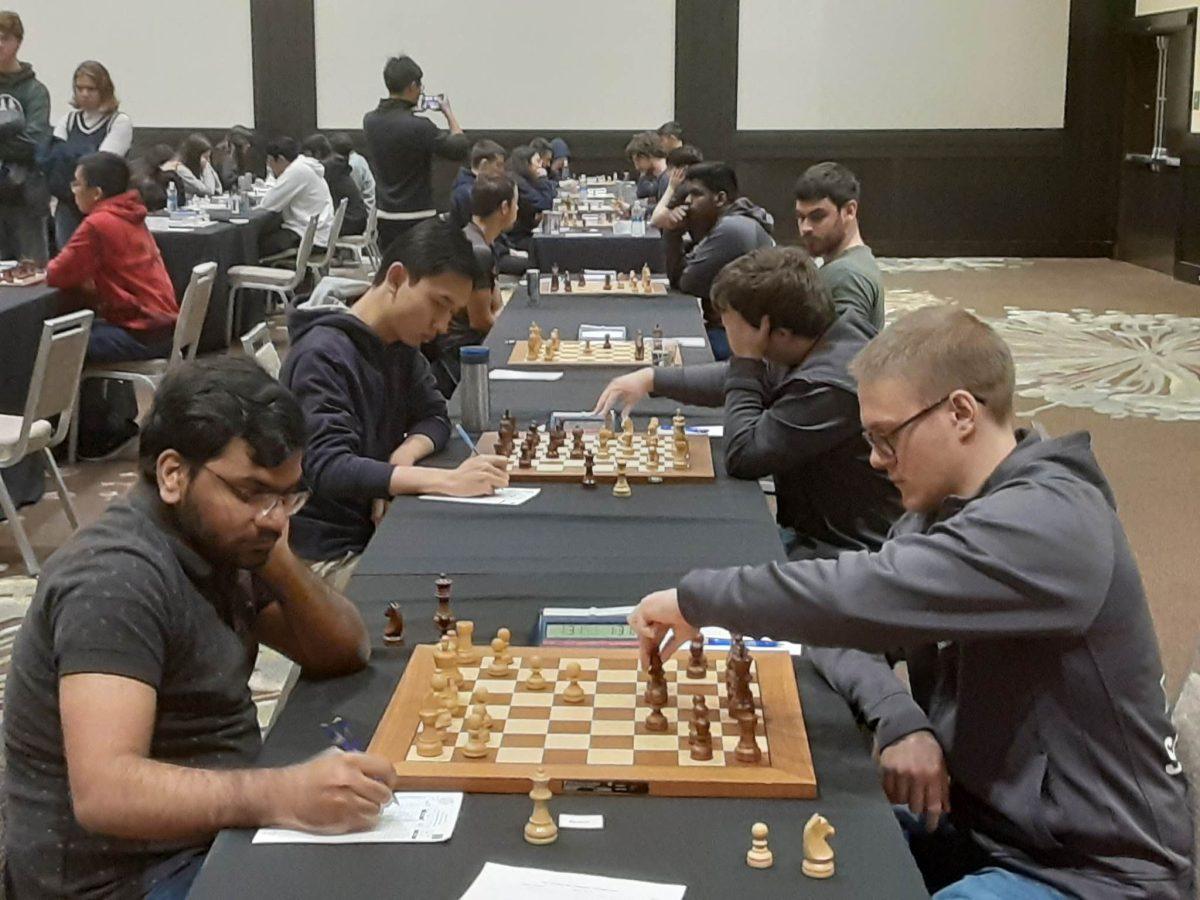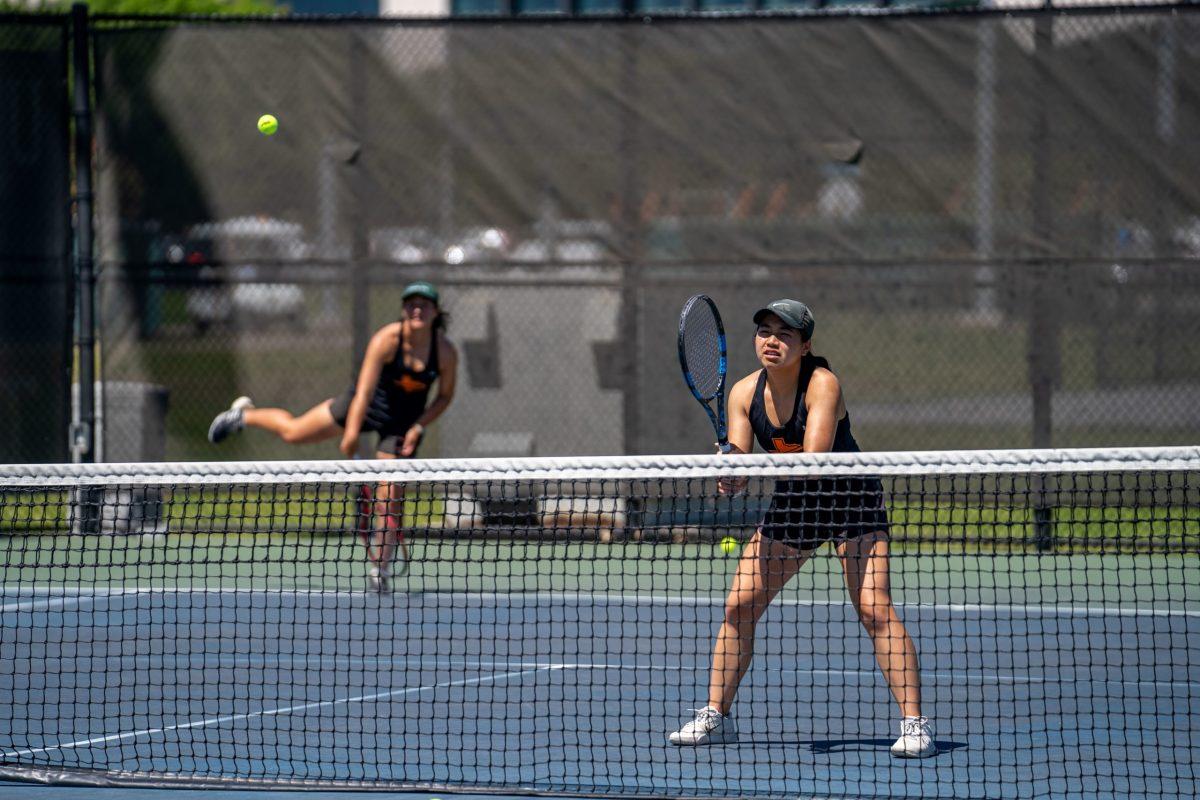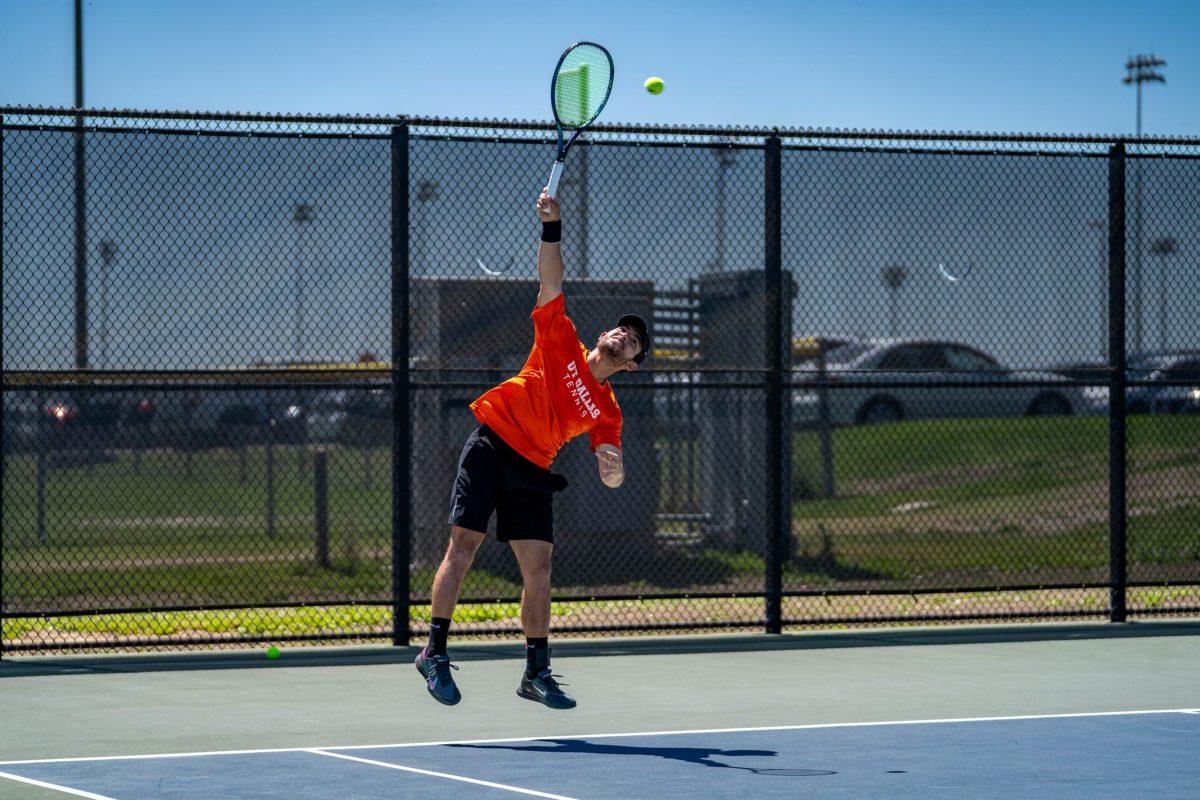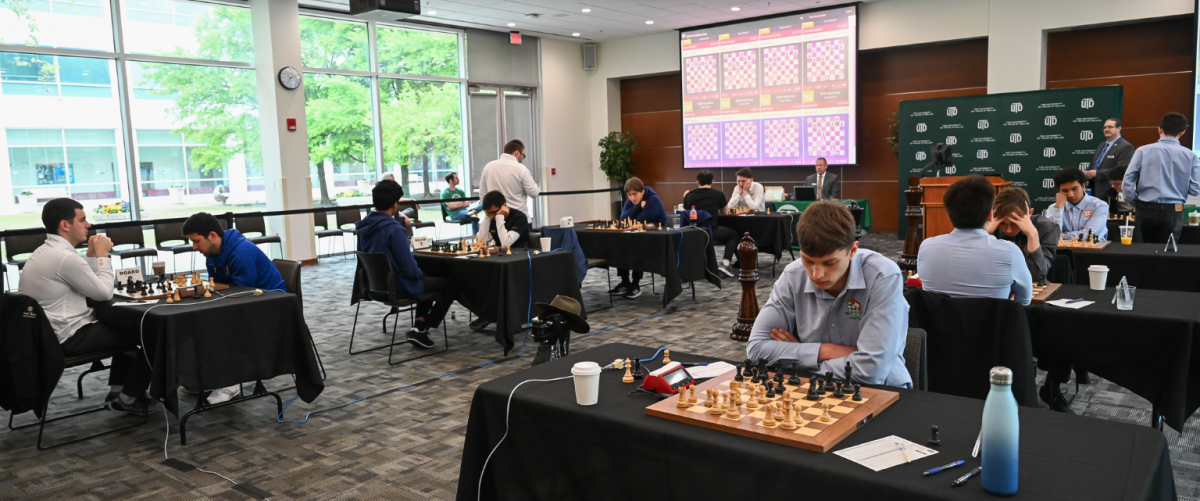Head women’s basketball coach inspired by father’s coaching career, seeks his insight as her assistant coach
Head women’s basketball coach Polly Thomason faced a turning point in her youth that helped define who she was for the rest of her life.
That moment came during her senior year as a member of the varsity basketball team at Martin High School in Arlington. She had been a member of the squad since she was a sophomore and felt like she should be starting.
Despite her track record, she still found herself on the bench to start the year.
“The first three or four games of the year I wasn’t starting,” she said. “And I was like, ‘Dad, this makes me really mad; I just want to transfer. Let me go to another high school.’”
Instead of supporting his daughter’s request, James Thomason pointed out the error in her way of thinking. He told her she was sitting on the bench because she could play at every position and was a better asset to the team coming in to replace the player who was struggling the most.
Even though she didn’t like that answer, Thomason stayed on and eventually became a starter and was named All-District as a senior, helping to lead her team to the state playoffs that year.
Even though she’s grown up now, she’s still taking advice from her father who is a volunteer assistant coach on Thomason’s staff.
The arrangement began after her first year as a collegiate coach at UTD. Thomason would always talk to her father after games about what happened.
During these conversations, James would often share insights that Thomason hadn’t thought about during the contest.
“I was like, ‘OK, I would like to know this information while the game is going on,’” she said. “So I asked him, ‘Would you mind sitting on the bench and being my assistant?’”
The only caveat was that she was allowed to tell him no, and he couldn’t get offended if they didn’t agree.
“When we’re in this role, I’m the boss,” she said.
James, who is now retired, spent 15 years coaching boys’ and girls’ basketball at the high school and middle school levels. He coached at schools from small towns in West Texas to the Metroplex and finished with five different district titles before retiring.
During his time, he has seen the game evolve dramatically. When he first started coaching, the game was much different for girls.
“It was called a two-court game where you had three offensive players and three defensive players, and neither one of them could cross the half court,” James said.
Even though it took the girls a few years to get used to a full court game, James said he has seen the game blossom into something great.
It was that experience that allowed James to see the game in a different light than Thomason. As a member of the staff, Thomason said he adds an extra set of eyes that helps catch some of the details that she may miss during the heat of the game.
During games, he keeps shot charts detailing what shots are working and what shots aren’t for the Comets.
“I know who’s making the shots and where they’re taking them,” James said.
Game planning is also part of his role. He sends Thomason two or three emails a day about strategies and thoughts on upcoming games.
“Sometimes I like them, and sometimes I’m annoyed by them,” she said. “It’s just like with any parent; it’s like, ‘Come on!’ I just have to remember that he’s not telling me what to do. He’s not telling me he knows more than me. He’s just trying to help.”
He also helps in recruiting, particularly in the Arlington and Fort Worth areas, where he currently resides. He helps scout the talent that the rest of Thomason’s staff doesn’t have the time or resources to look at.
James is on the sidelines for every game, including road games, which he drives to himself.
This year’s home game against Howard Payne was the first game that he has missed in his 10 years as a coach for the Comets.
“He goes out to Mississippi (College); he goes out to Sul Ross. He loves it,” Thomason said. “I can’t imagine him ever not being there.”
Growing up, James’ influence on Thomason was huge, particularly when it came to her participation in athletics. Title IX was relatively new at the time and the thought of girls playing sports was still considered taboo by many.
This particularly affected Thomason’s mother, who wanted to participate in sports but was barred from doing so by her parents.
“As soon as she had daughters, she was like, ‘Yeah, y’all are playing if you want,’” Thomason said.
Sports were always a part of the conversation in the Thomason household, and the hours James spent coaching in the gym rubbed off on his daughter.
As Thomason has progressed as a coach, James has told her to work the players hard but to make it fun for them.
This and other qualities have been passed on from one generation to the next. They’re both very easygoing, James said, something that helped Thomason when she was turned down for the coaching job at University of the Ozarks. More than that, though, they’re both hard-working.
“I think that what I’ve always tried to teach her is that it takes hard work to be the best at anything, and that’s what she’s trying to do,” James said.
Thomason has only improved as she’s progressed as a coach, he said, and has become much better at the job than he ever was.
Thomason said that if it weren’t for the support that her parents had offered her, she never would have been able to make it that far.
“This is not an easy profession to get into, and they were like, ‘Go for it,’” she said. “I’m very blessed. If it wasn’t for them saying ‘Go chase your dreams. Go do what you want to do in this life,’ I wouldn’t be here today.”

